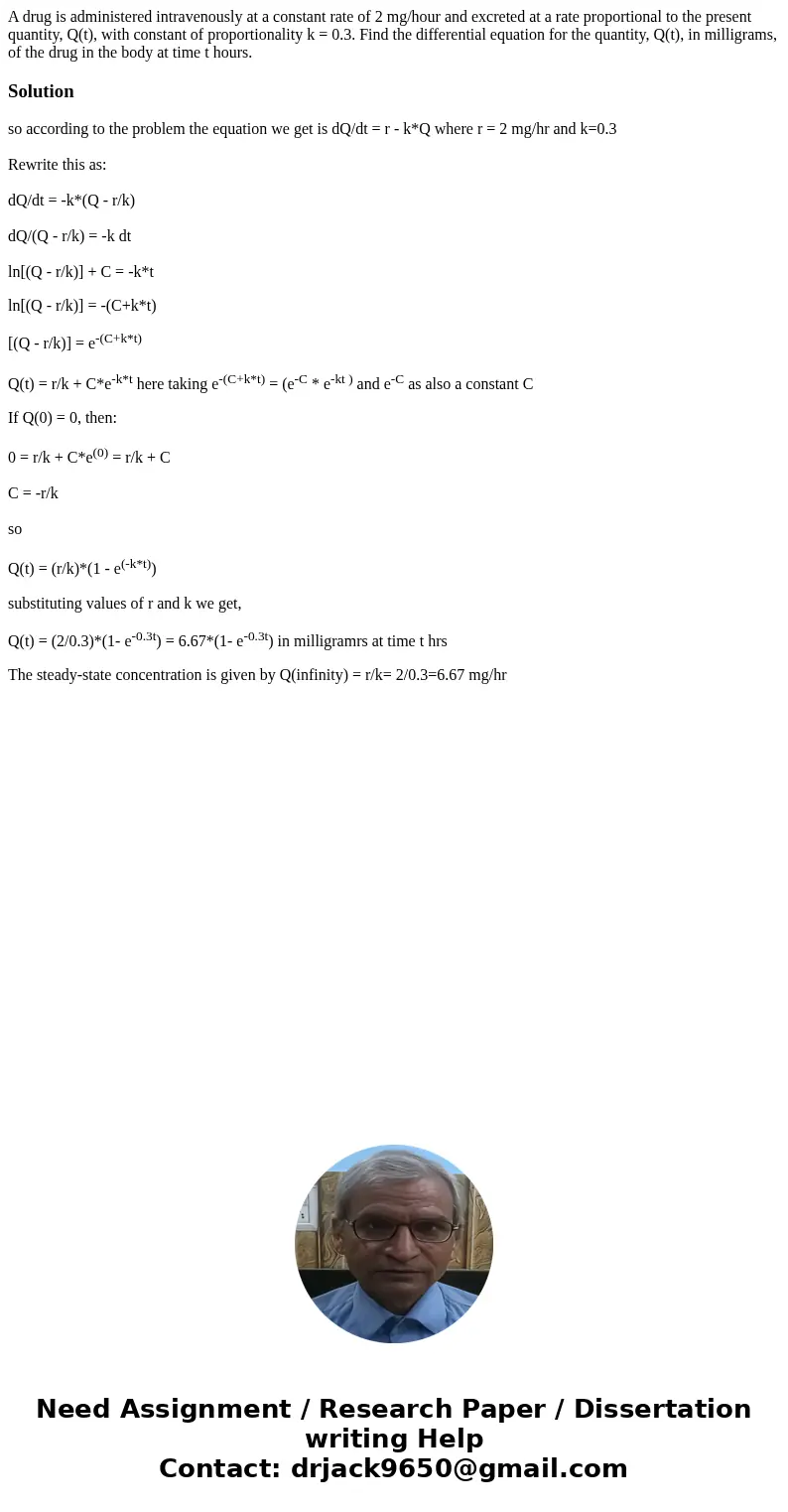A drug is administered intravenously at a constant rate of 2
A drug is administered intravenously at a constant rate of 2 mg/hour and excreted at a rate proportional to the present quantity, Q(t), with constant of proportionality k = 0.3. Find the differential equation for the quantity, Q(t), in milligrams, of the drug in the body at time t hours.
Solution
so according to the problem the equation we get is dQ/dt = r - k*Q where r = 2 mg/hr and k=0.3
Rewrite this as:
dQ/dt = -k*(Q - r/k)
dQ/(Q - r/k) = -k dt
ln[(Q - r/k)] + C = -k*t
ln[(Q - r/k)] = -(C+k*t)
[(Q - r/k)] = e-(C+k*t)
Q(t) = r/k + C*e-k*t here taking e-(C+k*t) = (e-C * e-kt ) and e-C as also a constant C
If Q(0) = 0, then:
0 = r/k + C*e(0) = r/k + C
C = -r/k
so
Q(t) = (r/k)*(1 - e(-k*t))
substituting values of r and k we get,
Q(t) = (2/0.3)*(1- e-0.3t) = 6.67*(1- e-0.3t) in milligramrs at time t hrs
The steady-state concentration is given by Q(infinity) = r/k= 2/0.3=6.67 mg/hr

 Homework Sourse
Homework Sourse